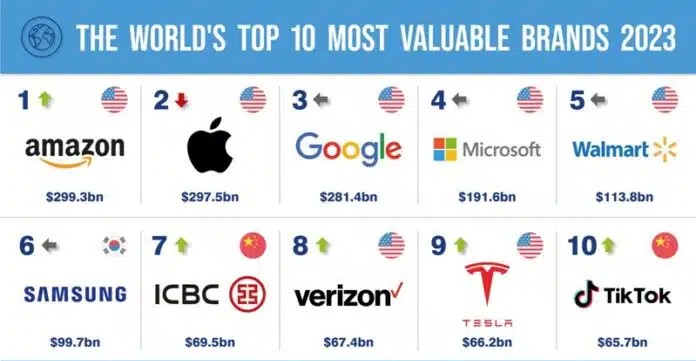
Global branding refers to brand management in various parts of the world with the intention to maximise its recognition and strength in relevant markets. Also, known as international branding, global branding means determining how a brand wants to be perceived throughout the world and how it will position itself in the markets to achieve that vision. Its vision is more than delivering products to several countries. The idea of international branding can be transformed into tangible activities that affect customer touch points (pricing, product, promotion and place) via global brand management tactics.
Brand management on a global scale has a promising scope in terms of jobs. So, if you’re interested in learning the strategies and principles of global brand management, brand positioning and more, IIT Delhi is offering a Executive Programme in Brand Management. This programme is delivered by IIT Delhi’s esteemed faculty and industry experts, who offer a holistic learning experience to aspiring professionals. To learn more about this programme, enrol with Jaro Education.
Table of Contents
Significance of Global Brand Management
Globally recognised brands frequently have bigger market shares due to a broader client base. Global branding enables businesses to acquire more customers, increasing both revenue and market share. Increased market share may also boost a brand’s overall value or financial worth. There are numerous advantages of global brand management, which are as follows:
Better Bargaining Power
A global brand builds prestige through time, strengthening its reputation in several worldwide marketplaces, which leads to bargaining power with which the brand may negotiate favourable terms with partners, clients and suppliers.
Maximum Reach
Global brand management’s most obvious benefit is maximising a brand’s reach. With the global reach, an organisation becomes well-known across the world, attracting and converting more prospective clients and thereby increasing sales.
Improved Brand Appreciation
Companies that prioritise expansion are likely to have a valued worldwide reputation. They become quality icons, especially when compared to local brands. As a result, the brand’s impression improves significantly in a number of markets. Alongside this, a global brand management strategy promotes its identity, gains people’s confidence and reinforces it in the locations where it operates with a better approach.
Improved ROIs
Global brand management opens more opportunities to companies for marketing and branding efforts. Instead of creating many ads for distinct locations and markets, global businesses may launch a single campaign for a larger territory. This method significantly reduces the company’s expenditures on advertising, packaging, and promotional materials. They may concentrate on choosing the best advertising agency and assembling global talent. After doing so, a company can work with more efficiency, and less expense and achieve a higher ROI.
Greater Brand Value
When global brand management works well, it increases a company’s brand value. Most worldwide companies, if you think about it, are a part of what you do every day. So, when a firm develops globally and gains brand awareness from individuals in different nations and cultures, the brand itself becomes the company’s most valuable asset.
Eliminates Competition with Local Brands
One of the greatest advantages of global brand management is overcoming or eliminating local competition. Global brands may immediately establish a competitive advantage over local competitors by implementing a strong branding strategy, which leads to an increase in customer awareness and revenue.
Opens New Opportunities
When a brand goes worldwide, it opens up exciting and new possibilities. For example, a certain company’s product may end up satisfying an unmet demand in some regions of the world. The corporation may then enter this market unopposed and establish itself as a resource for the local populace. Such brands, with an ambitious expansion plan, might eventually become synonyms for the category they serve in some countries.
Challenges of Global Brand Management
Technology Adoption
In terms of adopting new technologies, every nation is to be at a distinct point. This poses a significant challenge to the creation of international branding. Data plans, changing legislation, infrastructure and regional technological preference (in the event of brand selling mobile digital components) play important roles in campaign strategies. Brands may opt to fund customisation technology to focus on specific channels and deliver appropriate and relevant offers to their customers.
Cultural Barriers
There are not any universal brand management tactics for prospective global brands. Before launching its new brand in the market, a company should understand its local markets. In these regional marketplaces, cultural norms might be a barrier to creating a global brand strategy. Sometimes, an email or a certain offer will insult buyers in one nation while engaging those in another. That is why it is critical to invest significant effort in learning about the local market. However, brands may grow by using big data insights, carefully analysing and by keeping an eye on society’s cultural norms.
Legal Barriers
In addition to technical and cultural barriers, legal obstacles might offer difficulties for an international brand. A brand’s entry into the global market could be hindered by its country’s or region’s legal environment. Understanding the political and legal framework of the new market is essential for organisations to prevent legal problems or an expensive launch.
Diverse Teams
A diverse staff may make or ruin a company-wide implementation. Coordination across markets necessitates preparation, attention to detail, regular communication, and cross-departmental teamwork. When the team is geographically distributed, it might be difficult for the organisation to implement an effective internal communications plan. Holding each other accountable might exacerbate the problem, resulting in delays.
Increased Competition
Global expansion means entering markets where competitors are likely to exist. To understand the competitive landscape and devise strategies to overcome new rivals, businesses must do extensive market research and analysis.
Time-Consuming Process
Global branding is an ongoing and ever-changing process that might endure for years. Businesses must be prepared for issues along the road and remain dedicated to their goals in the face of potential setbacks.
Local Economy
Global branding can be significantly affected by the local economy, particularly price policies. Businesses may need to modify their prices in order to remain competitive and meet the local budget. This might involve cutting prices in some areas to match the local economy, which can have an impact on the company’s profits.
Renowned Brands in the Global Market: Case Studies
Various international brands stand by the definition of global brand management. Some of these cases are as follows:

*retailsee.com
Nike
Nike has expanded its worldwide exposure by carefully picking overseas sponsorships, like its long-standing partnership with Manchester United. Although sponsorship expenditure may be volatile, demand expenses tend to rise in response to triggers such as championships and tournaments. Another technique that Nike used to attract an audience in the global markets is Nike’s “Nike by You” co-creation platform. With this, Nike can create customised items that correspond with varied cultural tastes and trends by placing the power of design in the hands of the user.
Coca-Cola
When it comes to global marketing efforts, Coca-Cola is a perfect example. Despite having a major multinational existence, the company focuses on community programmes and invests in small-scale charitable projects like the installation of various clean water systems in the remote community of Beni Suef in Egypt, sponsoring Ramadan dinners for children around the Middle East, etc. The company, thus remains committed to selling a feeling that cannot be lost in translation – happiness.
Conclusion
Before marketers take their brands to the global landscape, it is important that they consider the cultural, local, technical and diversity challenges. They should refer to some already-existing global brand management strategies and formulate their own. Despite its barriers, global brand management does play an important role in increasing a brand’s presence worldwide, which helps in the rise of new opportunities and increases its market share.
Since brand management is one of the vital aspects for any brand to grow and enhance their portfolio, a career in brand management has become the choice of most of the graduates and professionals. If you are one of them, you must consider enrolling in IIT Delhi’s Executive Programme in Brand Management – CEP, IIT Delhi. This programme addresses the demand for skilled professionals in the industry. It is a 6-month course designed to provide aspiring brand managers with practical insights into the dynamic field of brand management. Through guest lectures by eminent industry experts and panel discussions, with this programme, you will learn new skills and strategies to manage brands on a larger scale with expertise.









